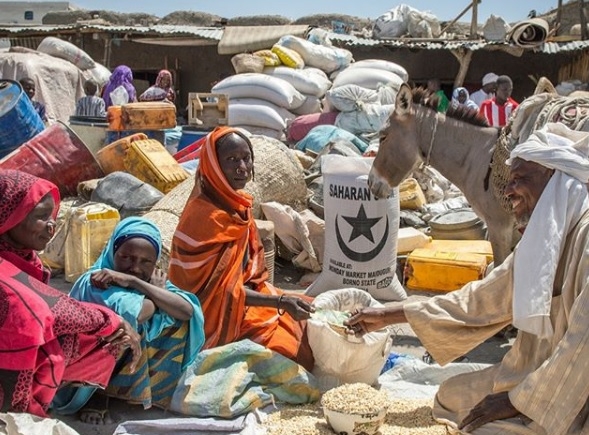The number of people experiencing food insecurity rose by 16 million in 2017

The Food Security Information Network released its 2018 Global Report on Food Crises today.
The report reveals that approximately 124 million people across 51 countries face a crisis level of food insecurity, requiring urgent humanitarian action.
This is an increase of 16 million people from 2016’s report.
The worst food crises of 2017 occurred in Nigeria, Somalia, Yemen and South Sudan with 32 million food insecure people. Famine was declared in two states of South Sudan in February 2017 and humanitarian needs across to country remain very high.
The report also highlighted that children and women are disproportionately affected by food insecurity and required greater support in 2017 compared to 2016. Women and children were reportedly most vulnerable in areas affected by conflict.
The substantial increase in food insecurity has been attributed to intensifying conflict in Yemen, Nigeria, Democratic Republic of Congo, South Sudan and Myanmar.
74 million of those affected by food insecurity were located across 18 countries where conflict and insecurity in a prominent issue, half of these were in Africa.
The report also highlights climate disasters, particularly drought, as a major trigger for food insecurity across 23 countries, with over 39 million people affected.
Across Africa, 32 million people faced food security due to climate disasters.
The report also identified challenges for 2018 and indicated that food insecurity is likely to remain a key issue for a number of countries such as Afghanistan, Central African Republic, the Democratic Republic of Congo, north-east Nigeria and the Lake Chad region, South Sudan, Syria and Yemen as well as Libya and the central Sahel.

Map showing expected food insecurity in 2018
Yemen is expected to remain the largest food crisis due to restricted access, economic collapse and outbreaks of disease.
Food insecurity is also expected to intensify in Somalia, Ethiopia, Kenya, Senegal, Chad, Niger, Mali, Mauritania and Burkina Faso due to severely dry weather effecting crop and livestock production.
However, the report also highlights a positive forecast for southern Africa due to a bumper cereal production in 2017 and falling food prices.
The report emphasises that without global peace and livelihood restoration there will be no significant improvements in food security. Until this has been achieved food security, nutrition and livelihoods-based interventions are crucial to saving lives and building resilience.
Climate Smart Agriculture is a key component of improving levels of food security. Join us for our innaugural Africa Climate Smart Agriculture Summit on 15-16 May 2018 in Nairobi, Kenya.
If you’d like to stay informed on the latest updates in aid and development, please sign up for the AIDF newsletter.
Image credit: World Food Programme















